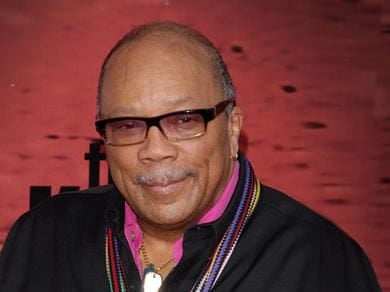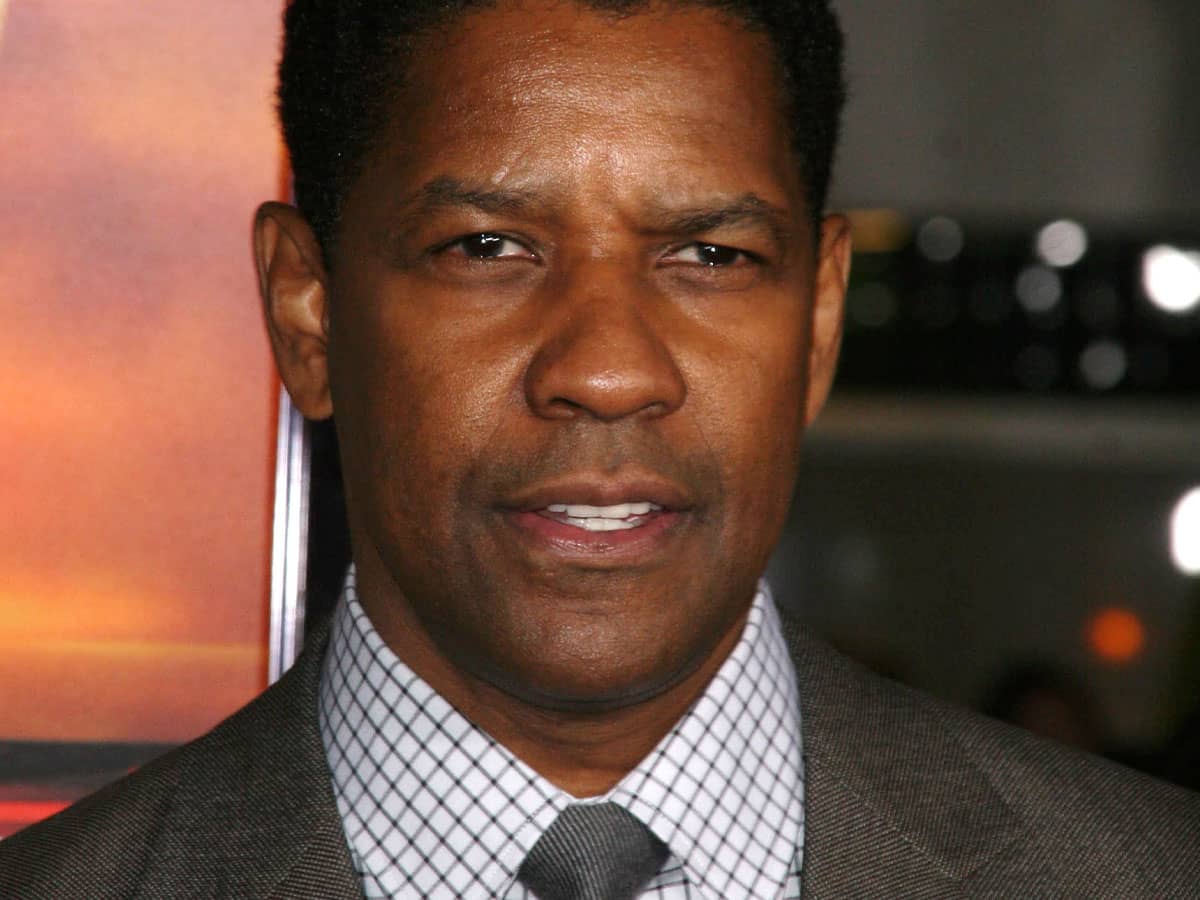
- Faith: Christian
- Career: Musician
- Birthday: March 14, 1933
- Date of Death: November 03, 2024
Quincy Jones was an iconic composer, producer and songwriter whose career spanned 70 years. He was nominated for a Grammy 80 times, winning 28, and won a Grammy Legend Award in 1992. Jones rose to fame in the 1950s as a conductor and jazz arranger before working on film scores and pop music. He’s been known for producing three of Michael Jackson’s most successful albums, “Off the Wall,” “Thriller,” and “Bad.”
Quincy Delight Jones Jr. was born on March 14, 1933, in the South Side of Chicago, Illinois, during the Great Depression. His early years were defined by hardship and resilience. His father, Quincy Delight Jones Sr., was a skilled carpenter and a semi-professional baseball player, while his mother, Sarah Frances Jones, was a bank officer and a religious figure who often sang in church. However, life took a tragic turn when his mother began to struggle with severe mental health issues, leading to her institutionalization.
The instability at home had a profound impact on young Quincy, who found solace in music. When his family relocated to Seattle, Washington, in the 1940s, Jones discovered his love for music, starting with the trumpet. The vibrant musical scene in Seattle provided fertile ground for his burgeoning talent, and by the age of 14, he had already met and started collaborating with Ray Charles, a blind teenage musician who would become a lifelong friend.
The church also played a significant role in shaping Jones’ musical sensibility. He was deeply influenced by gospel music and the spiritual atmosphere of the Black church, which instilled in him a profound sense of community and purpose.
Jones’ career began in earnest when he joined Lionel Hampton’s band as a trumpet player and arranger in the early 1950s. His keen ear for orchestration and arrangement quickly set him apart, leading to collaborations with legends like Dizzy Gillespie and Count Basie. By the late 1950s, he had become one of the most sought-after arrangers in jazz, working with artists like Sarah Vaughan and Duke Ellington.
The 1960s marked a pivotal period in Jones' career as he ventured into the world of film scoring. He broke racial barriers by becoming one of the first African Americans to compose scores for major Hollywood films, earning an Academy Award nomination for Best Original Song Score for In Cold Blood. His ability to blend jazz with orchestral arrangements brought a new dimension to film music and paved the way for future Black composers.
However, it was his collaboration with Michael Jackson that catapulted Jones to global superstardom. Together, they created Off the Wall, Thriller, and Bad—three of the most iconic albums in music history. Thriller, in particular, became the best-selling album of all time, transforming the music industry and solidifying Jones’ reputation as a genius producer. His meticulous attention to detail and ability to bring out the best in artists made these albums groundbreaking cultural phenomena.
Jones was also the mastermind behind “We Are the World,” a charitable anthem recorded in 1985 to raise funds for famine relief in Africa. As a producer of the historic track, he united a constellation of superstars to deliver a message of hope and solidarity, reinforcing the idea that music can be a force for global good.
Beyond music, Jones made his mark on television and film. He produced The Fresh Prince of Bel-Air, introducing Will Smith to audiences worldwide, and composed scores for movies like The Color Purple. Over his illustrious career, he earned 28 Grammy Awards out of 80 nominations, a Grammy Legend Award, and a Kennedy Center Honor, among many other accolades.
Jones’ personal life was as multifaceted as his career. He married three times: to Jeri Caldwell, Ulla Andersson, and Peggy Lipton. He also had a long-term relationship with actress Nastassja Kinski. Each relationship brought new joys and challenges, but his seven children remained the cornerstone of his world. His daughters, Rashida Jones and Kidada Jones, became accomplished actresses and directors, each embodying elements of their father’s creativity and passion.
Despite his fame and achievements, Jones remained deeply committed to his family. He was a loving and protective father who often spoke about the importance of family unity and the values he hoped to impart to his children. His role as a father was a balance of being a cultural icon and a present, caring parent. He often shared life lessons with his children, encouraging them to pursue their dreams with integrity and resilience.
Jones was also a passionate advocate for civil rights and humanitarian causes. His foundation, the Quincy Jones Foundation, focused on advancing initiatives related to global children’s welfare, health, and education. Throughout his life, he was a tireless voice for social change, emphasizing that music was not just a form of entertainment but a means to connect and heal communities.
In 1974, Jones faced a life-threatening brain aneurysm, an event that changed the course of his life. The recovery period was grueling, and doctors warned him that he might never play music again. However, his faith and unwavering determination saw him through. He emerged from the experience with a renewed sense of purpose, channeling his energy into producing and mentoring the next generation of artists.
As he grew older, Jones became more reflective, often sharing wisdom about aging, mortality, and the gift of a long, fulfilling life. He was grateful for his journey and the opportunities he had to create music that moved people. His health battles were a reminder of life’s fragility, but they also underscored his resilience and unyielding spirit.
Jones passed away on November 3, 2024 at his home in Bel-Air, surrounded by his family.
Was Quincy Jones religious?
Quincy Jones was a Christian. In an interview with Oprah in 1985, Jones said he had an out-of-body experience and saw “God and the end of life” while having major brain surgery. In a separate interview in February 2018, he said he believes in a God that opposes the love of money but doesn’t necessarily believe in an afterlife.
Quincy Jones’ Christian upbringing left an indelible mark on his life. The values he learned in church—compassion, humility, and service—guided him in both his personal and professional endeavors. While he embraced a diverse and inclusive worldview, his belief in a higher power was a source of strength and inspiration. He often spoke about the spiritual nature of music and how it could be a conduit for God’s love and grace.
His faith influenced his humanitarian work and his belief in the interconnectedness of all people. He saw music as a divine gift and believed it was his responsibility to use that gift to bring about positive change. In interviews, he would sometimes reflect on the spiritual aspects of his career, emphasizing that his success was not just a result of talent but also of divine favor and purpose.
Back to the Celebrity Faith Database








